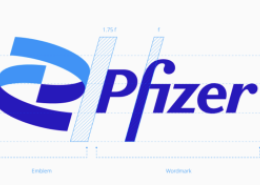Pfizer Receives Positive CHMP Opinion in Europe for XELJANZ® (tofacitinib citrate) for the Treatment of Moderate to Severe Active Rheumatoid Arthritis
“More than 2.9 million people are currently living with moderate to severe rheumatoid arthritis in Europe. Even with multiple therapeutic options, many of these people may not adequately respond to currently available treatments, including methotrexate”
Pfizer Inc. (NYSE:PFE) announced today that the Committee for Medicinal Products for Human Use (CHMP) of the European Medicines Agency (EMA) adopted a positive opinion recommending XELJANZ® (tofacitinib citrate) 5 mg twice daily (BID) for the treatment of patients with moderate to severe active rheumatoid arthritis (RA). The CHMP’s opinion will now be sent to the European Commission (EC) for final decision. If approved, XELJANZ in combination with methotrexate (MTX) will be indicated for the treatment of moderate to severe active RA in adult patients who have responded inadequately to, or who are intolerant to one or more disease-modifying antirheumatic drugs. XELJANZ can be given as monotherapy in case of intolerance to MTX or when treatment with MTX is inappropriate.
“More than 2.9 million people are currently living with moderate to severe rheumatoid arthritis in Europe. Even with multiple therapeutic options, many of these people may not adequately respond to currently available treatments, including methotrexate,” said Michael Corbo, Chief Development Officer, Inflammation & Immunology, Global Product Development. “The positive CHMP opinion for tofacitinib is an important milestone as we work to bring this new oral treatment option to people in the European Union living with moderate to severe active rheumatoid arthritis.”
The marketing authorisation application (MAA) included data from the Oral Rheumatoid Arthritis Phase 3 TriaLs (ORAL) global development program in RA. This program consisted of six completed clinical trials, ORAL Start, ORAL Solo, ORAL Standard, ORAL Sync, ORAL Scan, and ORAL Step, in addition to two open-label long-term extension (LTE) studies. At the time of the MAA submission, the ORAL development program had accumulated more than 19,000 patient-years of drug exposure in over 6,100 patients with follow-up observations of up to eight years in one of the LTE studies.
Tofacitinib is part of the Janus kinase (JAK) inhibitor class of medications. This will be a new class of medicines for the treatment of moderate to severe active RA in the EU. About Rheumatoid Arthritis (RA) RA is a chronic, inflammatory autoimmune disease that causes a range of symptoms, including pain and swelling in the joints, particularly those in the hands, feet and knees. Although the exact cause of RA is unknown, it is considered to be an autoimmune disease, because the immune system in people with RA mistakes the body’s healthy tissues for a threat and attacks them. Some people are at increased risk for developing RA, including people with a family history of RA, smokers and women. Three times as many women are affected by RA compared to men. RA affects approximately 17.6 million people worldwide and more than 2.9 million people in Europe. It can develop at any time during adulthood, but it usually occurs between 40 and 70 years of age.
About XELJANZ (tofacitinib citrate) XELJANZ® (tofacitinib citrate) has been approved for use in over 50 countries. Since tofacitinib was first approved in the U.S. in 2012, it has been prescribed to more than 85,000 patients worldwide. In the European Union (EU), XELJANZ is an investigational medicine and has not been approved for use. Pfizer is committed to advancing the science of JAK inhibition and enhancing understanding of XELJANZ through robust clinical development programs in the treatment of immune-mediated inflammatory conditions.
XELJANZ/XELJANZ XR U.S. Label Information XELJANZ (tofacitinib citrate)/XELJANZ XR (tofacitinib citrate) extended-release is a prescription medicine called a Janus kinase (JAK) inhibitor. XELJANZ/XELJANZ XR is used to treat adults with moderately to severely active rheumatoid arthritis in which methotrexate did not work well. XELJANZ/XELJANZ XR may be used as a single agent or in combination with methotrexate (MTX) or other non-biologic disease-modifying antirheumatic drugs (DMARDs). Use of XELJANZ/XELJANZ XR in combination with biologic DMARDs or potent immunosuppressants, such as azathioprine and cyclosporine, is not recommended.
• It is not known if XELJANZ/XELJANZ XR is safe and effective in people with hepatitis B or C. • XELJANZ/XELJANZ XR is not for people with severe liver problems. • It is not known if XELJANZ/XELJANZ XR is safe and effective in children. Important Safety Information
• XELJANZ/XELJANZ XR can lower the ability of the immune system to fight infections. Some people can have serious infections while taking XELJANZ/XELJANZ XR, including tuberculosis (TB), and infections caused by bacteria, fungi, or viruses that can spread throughout the body. Some people have died from these infections. Healthcare providers should test patients for TB before starting XELJANZ/XELJANZ XR, and monitor them closely for signs and symptoms of TB and other infections during treatment. People should not start taking XELJANZ/XELJANZ XR if they have any kind of infection unless their healthcare provider tells them it is okay.
• People may be at a higher risk of developing shingles.
• XELJANZ/XELJANZ XR may increase the risk of certain cancers by changing the way the immune system works. Lymphoma and other cancers, including skin cancers, can happen in patients taking XELJANZ/XELJANZ XR.
• The risks and benefits of treatment should be considered prior to initiating XELJANZ/XELJANZ XR in patients with chronic or recurrent infection; who have been exposed to tuberculosis; with a history of a serious or an opportunistic infection; who have resided or traveled in areas of endemic tuberculosis or endemic mycoses; or with underlying conditions that may predispose them to infection.
• Viral reactivation, including cases of herpes virus reactivation (e.g., herpes zoster), was observed in clinical studies with XELJANZ. • Use of live vaccines should be avoided concurrently with XELJANZ/XELJANZ XR. Update immunizations in agreement with current immunization guidelines prior to initiating XELJANZ/XELJANZ XR therapy.
• Some people who have taken XELJANZ with certain other medicines to prevent kidney transplant rejection have had a problem with certain white blood cells growing out of control (Epstein Barr virus-associated post-transplant lymphoproliferative disorder).
• Some people taking XELJANZ/XELJANZ XR can get tears in their stomach or intestines. This happens most often in people who also take nonsteroidal anti-inflammatory drugs (NSAIDs), corticosteroids, or methotrexate.
• XELJANZ/XELJANZ XR should be used with caution in patients who may be at increased risk for gastrointestinal perforation (e.g., patients with a history of diverticulitis), or who have a narrowing within their digestive tract. Patients should tell their healthcare provider right away if they have fever and stomach-area pain that does not go away or a change in bowel habits.
• XELJANZ/XELJANZ XR can cause changes in certain lab test results including low blood cell counts, increases in certain liver tests, and increases in cholesterol levels. Healthcare providers should do blood tests before starting patients on XELJANZ/XELJANZ XR and while they are taking XELJANZ/XELJANZ XR, to check for these side effects. Normal cholesterol levels are important to good heart health. Healthcare providers may stop XELJANZ/XELJANZ XR treatment because of changes in blood cell counts or liver test results.
• Use of XELJANZ/XELJANZ XR in patients with severe hepatic impairment is not recommended.
• Patients should tell their healthcare providers if they plan to become pregnant or are pregnant. It is not known if XELJANZ/XELJANZ XR will harm an unborn baby. To monitor the outcomes of pregnant women exposed to XELJANZ/XELJANZ XR, a registry has been established. Physicians are encouraged to register patients and pregnant women are encouraged to register themselves by calling 1-877-311-8972.
• Patients should tell their healthcare providers if they plan to breastfeed or are breastfeeding. Patients and their healthcare provider should decide if they will take XELJANZ/XELJANZ XR or breastfeed. They should not do both.
• In carriers of the hepatitis B or C virus (viruses that affect the liver), the virus may become active while using XELJANZ/XELJANZ XR. Healthcare providers may do blood tests before and during treatment with XELJANZ/XELJANZ XR.
• Common side effects include upper respiratory tract infections (common cold, sinus infections), headache, diarrhea, and nasal congestion, sore throat, and runny nose (nasopharyngitis). Please click the direct link to the full US Prescribing Information for XELJANZ/XELJANZ XR, including Boxed Warning and Medication Guide: http://labeling.pfizer.com/ShowLabeling.aspx?id=959.
Pfizer Inc.: Working together for a healthier world®
At Pfizer, we apply science and our global resources to bring therapies to people that extend and significantly improve their lives. We strive to set the standard for quality, safety and value in the discovery, development and manufacture of healthcare products. Our global portfolio includes medicines and vaccines as well as many of the world's best-known consumer healthcare products. Every day, Pfizer colleagues work across developed and emerging markets to advance wellness, prevention, treatments and cures that challenge the most feared diseases of our time. Consistent with our responsibility as one of the world's premier innovative biopharmaceutical companies, we collaborate with health care providers, governments and local communities to support and expand access to reliable, affordable health care around the world. For more than 150 years, Pfizer has worked to make a difference for all who rely on us. For more information, please visit us at www.pfizer.com. In addition, to learn more, follow us on Twitter at @Pfizer and @Pfizer_News, LinkedIn, YouTube and like us on Facebook at Facebook.com/Pfizer.
DISCLOSURE NOTICE: The information contained in this release is as of January 27, 2017. Pfizer assumes no obligation to update forward-looking statements contained in this release as the result of new information or future events or developments. This release contains forward-looking information about a potential indication in Europe for XELJANZ (tofacitinib citrate) 5 mg twice daily for the treatment of moderate to severe active rheumatoid arthritis in adult patients who have responded inadequately to, or who are intolerant to one or more disease-modifying antirheumatic drugs. XELJANZ can be given as monotherapy in case of intolerance to MTX or when treatment with MTX is inappropriate (the “potential indication”), including its potential benefits, that involves substantial risks and uncertainties that could cause actual results to differ materially from those expressed or implied by such statements. Risks and uncertainties include, among other things, the uncertainties inherent in research and development, including, without limitation, the ability to meet anticipated trial commencement and completion dates and regulatory submission dates, as well as the possibility of unfavorable clinical trial results, including unfavorable new clinical data and additional analyses of existing clinical data; uncertainties regarding the commercial success of XELJANZ; whether and when the European Commission may approve the Marketing Authorisation Application for the potential indication and whether and when regulatory authorities in any other jurisdictions where applications are pending or may be submitted for XELJANZ may approve any such applications, which will depend on the assessment by such regulatory authorities of the benefit-risk profile suggested by the totality of the efficacy and safety information submitted; decisions by regulatory authorities regarding labeling and other matters that could affect the availability or commercial potential of XELJANZ; and competitive developments. A further description of risks and uncertainties can be found in Pfizer’s Annual Report on Form 10-K for the fiscal year ended December 31, 2015 and in its subsequent reports on Form 10-Q, including in the sections thereof captioned “Risk Factors” and “Forward-Looking Information and Factors That May Affect Future Results”, as well as in its subsequent reports on Form 8-K, all of which are filed with the U.S. Securities and Exchange Commission and available at www.sec.gov and www.pfizer.com.
Pfizer U.S. Media: Steven Danehy, 978-273-3946 [email protected] or
Pfizer Europe Media: Lisa O'Neill, +44 7929 339 560 Lisa.O'[email protected] or
Investors: Chuck Triano, 212-733-3901 [email protected]








